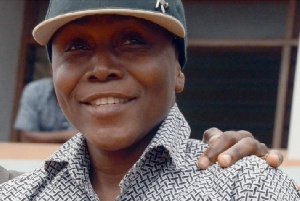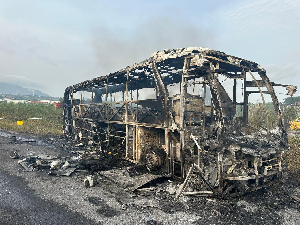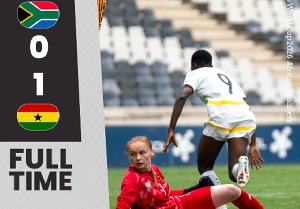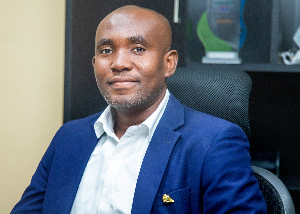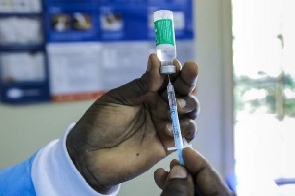It has gone on for so unduly long that the Gregory Afoko case has almost effectively become a travesty (See “State Prosecutors Want Interpreter in Afoko’s Case Changed” Kasapafmonline.com / Ghanaweb.com 10/11/16).
For those of our readers who may not readily recall, this is the case in which the younger brother of the indefinitely suspended Chairman of the main opposition New Patriotic Party (NPP) has been standing trial for allegedly masterminding the brutal acid-dousing assassination of the former Upper-East Region’s Chairman of the party.
At the time of his death, nearly two years ago, Mr. Adams Mahama was the substantive Chairman of the Upper-East’s regional branch of the NPP. The slain man had been known to have been a bitter rival of the party’s National Chairman, and a couple of weeks before, the factional supporters of the two men had been widely reported to have violently clashed at the party’s Bolgatanga regional headquarters.
But what made the case even more heart-wrenching was the fact that barely two weeks before his brutal assassination, Mr. Mahama had written and published a press statement seeking to reconcile with his rival as part of yeomanly efforts to unite the two most notorious factions within the NPP, namely, the Kufuor-Kyerematen Faction and the Adu-Boahen/Akufo-Addo Faction.
In his statement, Mr. Mahama had noted having been rudely disrespected by Mr. Paul Awentami Afoko, who had imperiously presumed to hold a meeting at the party’s Upper-East regional headquarters without the regional chairman’s notification.
It was this widely perceived act of abject disrespect that had resulted in violent clashes between the followers of the two men, both of whom were also known to be longtime residents of Bolgatanga, the region’s capital.
The suspended party’s National Chairman has consistently denied accusations that he had a hand in Mr. Mahama’s death, both by some members of the slain man’s family and some party stalwarts. Such suspicion may well have been further complicated by the fact that the elder Mr. Afoko had attempted to cop an alibi for the prime suspect, Mr. Gregory Afoko, which had almost immediately backfired. The fact that the prime suspect had a criminal record for which he had served a prison term has made it extremely difficult for the younger Mr. Afoko to exonerate himself from criminal culpability.
Coupled with the foregoing is also the fact that one of the three criminal suspects, Mr. Asabke Alangdi, is alleged to have escaped arrest based partly on misleading information provided to the Bolgatanga police by Mr. Gregory Afoko. Mr. Alangdi, whose wife was reportedly nursing a baby, would abscond with her husband and leave the couple’s baby behind.
A third suspect, Mr. Issah Musah, would be granted bail after preliminary investigations by the Bolgatanga police had determined that he was not a security risk. Mr. Musah had initially been charged with being an accessory to the crime by purchasing the container of liquid acid that was allegedly used in the slaying of Mr. Mahama.
The case has also caused bitter animosity between the Mahama and Afoko families, and on several occasions during court proceedings, law-enforcement officers have had to intervene to prevent the two families from violently attacking each other. But that this case has been dragging on for so long, does not give much comfort to either party involved as well as concerned Ghanaian citizens and general observers. The Adams Mahama slaying has also significantly impacted the New Patriotic Party, and may well have also significantly factored into the indefinite suspension of Chairman Paul Afoko. Now, the ongoing prosecution of the case appears to have hit a snag, with the prosecutor allegedly demanding the immediate removal of the Hausa-language interpreter for the widow of the slain man, Hajia Zenabu Mahama, against vehement protestation from defense counsel who have argued that the state prosecutor is hell-bent on securing what it deems to be an unfair guilty verdict against their client.
Whatever the ultimate outcome of the case, one party is very likely to appeal against what it may deem to be a judicial travesty. But what is most worrisome here is not the outcome of this particular case, but the fact that it generally appears that the country’s judicial system has an extremely difficult time dealing with incidents or acts of political criminality.
*Visit my blog at: kwameokoampaahoofe.wordpress.com Ghanaffairs
Kwame Okoampa-Ahoofe, Jr., Ph.D.
English Department, SUNY-Nassau
Garden City, New York
October 12, 2016
E-mail: okoampaahoofe@optimum.net
Opinions of Monday, 17 October 2016
Columnist: Kwame Okoampa-Ahoofe, Jr., Ph.D.
Afoko case has been unduly prolonged
Entertainment


